Solar eclipse of June 21, 2039
| Solar eclipse of June 21, 2039 | |
|---|---|
 Map | |
| Type of eclipse | |
| Nature | Annular |
| Gamma | 0.8312 |
| Magnitude | 0.9454 |
| Maximum eclipse | |
| Duration | 245 sec (4 m 5 s) |
| Coordinates | 78°54′N 102°06′W / 78.9°N 102.1°W |
| Max. width of band | 365 km (227 mi) |
| Times (UTC) | |
| Greatest eclipse | 17:12:54 |
| References | |
| Saros | 147 (24 of 80) |
| Catalog # (SE5000) | 9595 |
An annular solar eclipse will occur on June 21, 2039. A solar eclipse occurs when the Moon passes between Earth and the Sun, thereby totally or partly obscuring the image of the Sun for a viewer on Earth. An annular solar eclipse occurs when the Moon's apparent diameter is smaller than the Sun's, blocking most of the Sun's light and causing the Sun to look like an annulus (ring). An annular eclipse appears as a partial eclipse over a region of the Earth thousands of kilometres wide. This eclipse will start only a few hours after the northern solstice and most of the path will go across areas with midnight sun. For mainland Norway and Sweden it will be the first central solar eclipse since June 1954.
Images
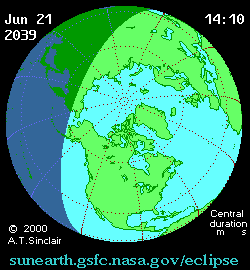
Animated path
Related eclipses
Solar eclipses of 2036-2039
Each member in a semester series of solar eclipses repeats approximately every 177 days and 4 hours (a semester) at alternating nodes of the Moon's orbit.
Note: Partial lunar eclipses on February 27, 2036 and August 21, 2036 occur on the previod lunar year eclipse set.
| Solar eclipse series sets from 2036-2039 | ||||
|---|---|---|---|---|
| Descending node | Ascending node | |||
| 117 | July 23, 2036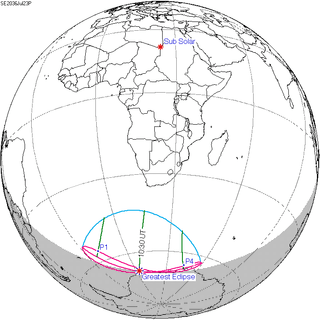 Partial |
122 | January 16, 2037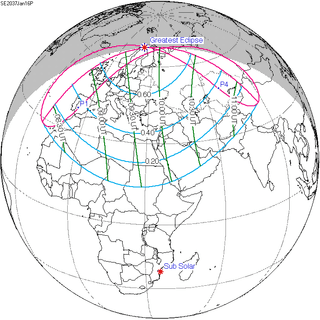 Partial | |
| 127 | July 13, 2037 Total |
132 | January 5, 2038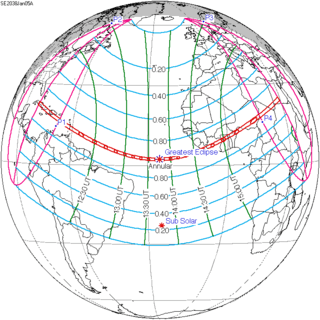 Annular | |
| 137 | July 2, 2038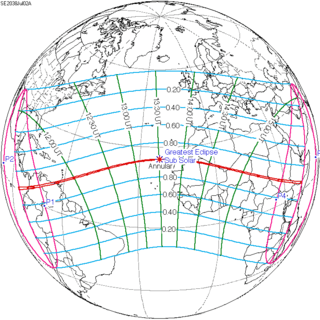 Annular |
142 | December 26, 2038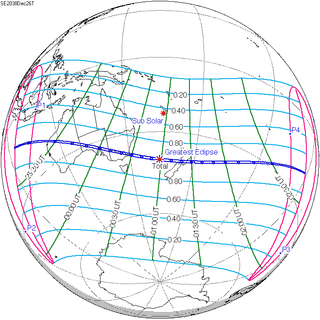 Total | |
| 147 | June 21, 2039 Annular |
152 | December 15, 2039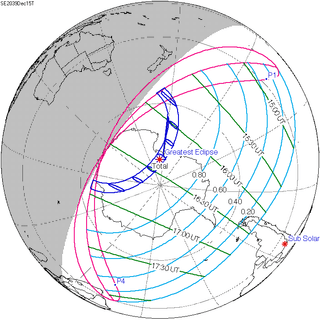 Total | |
Metonic series
The metonic series repeats eclipses every 19 years (6939.69 days), lasting about 5 cycles. Eclipses occur in nearly the same calendar date. In addition the octon subseries repeats 1/5 of that or every 3.8 years (1387.94 days).
| 21 eclipse events between June 21, 1982, and June 21, 2058 | ||||
|---|---|---|---|---|
| June 21 | April 8-9 | January 26 | November 13-14 | September 1-2 |
| 117 | 119 | 121 | 123 | 125 |
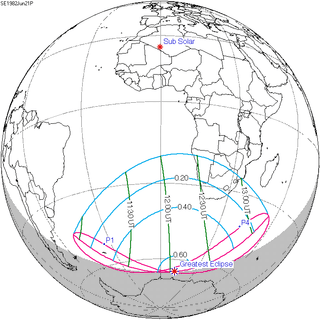 June 21, 1982 |
 April 9, 1986 |
 January 26, 1990 |
 November 13, 1993 |
 September 2, 1997 |
| 127 | 129 | 131 | 133 | 135 |
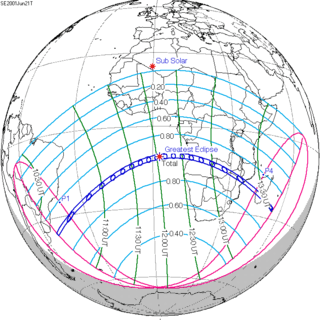 June 21, 2001 |
 April 8, 2005 |
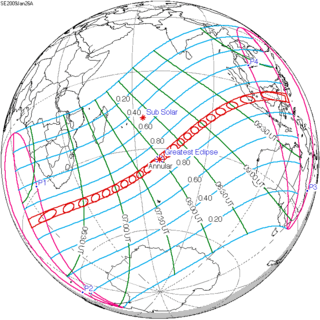 January 26, 2009 |
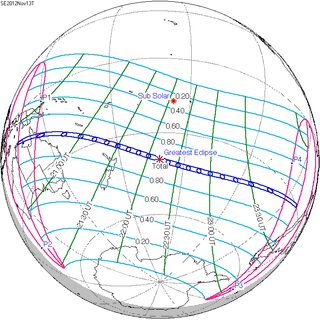 November 13, 2012 |
 September 1, 2016 |
| 137 | 139 | 141 | 143 | 145 |
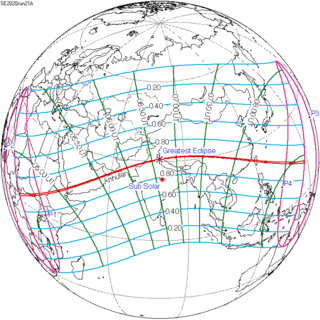 June 21, 2020 |
 April 8, 2024 |
 January 26, 2028 |
 November 14, 2031 |
 September 2, 2035 |
| 147 | 149 | 151 | 153 | 155 |
 June 21, 2039 |
 April 9, 2043 |
 January 26, 2047 |
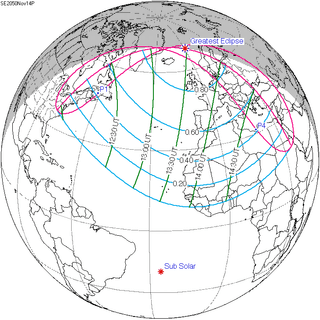 November 14, 2050 |
 September 2, 2054 |
| 157 | ||||
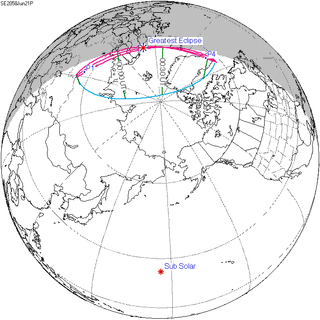 June 21, 2058 | ||||
References
| Wikimedia Commons has media related to Solar eclipse of 2039 June 21. |
